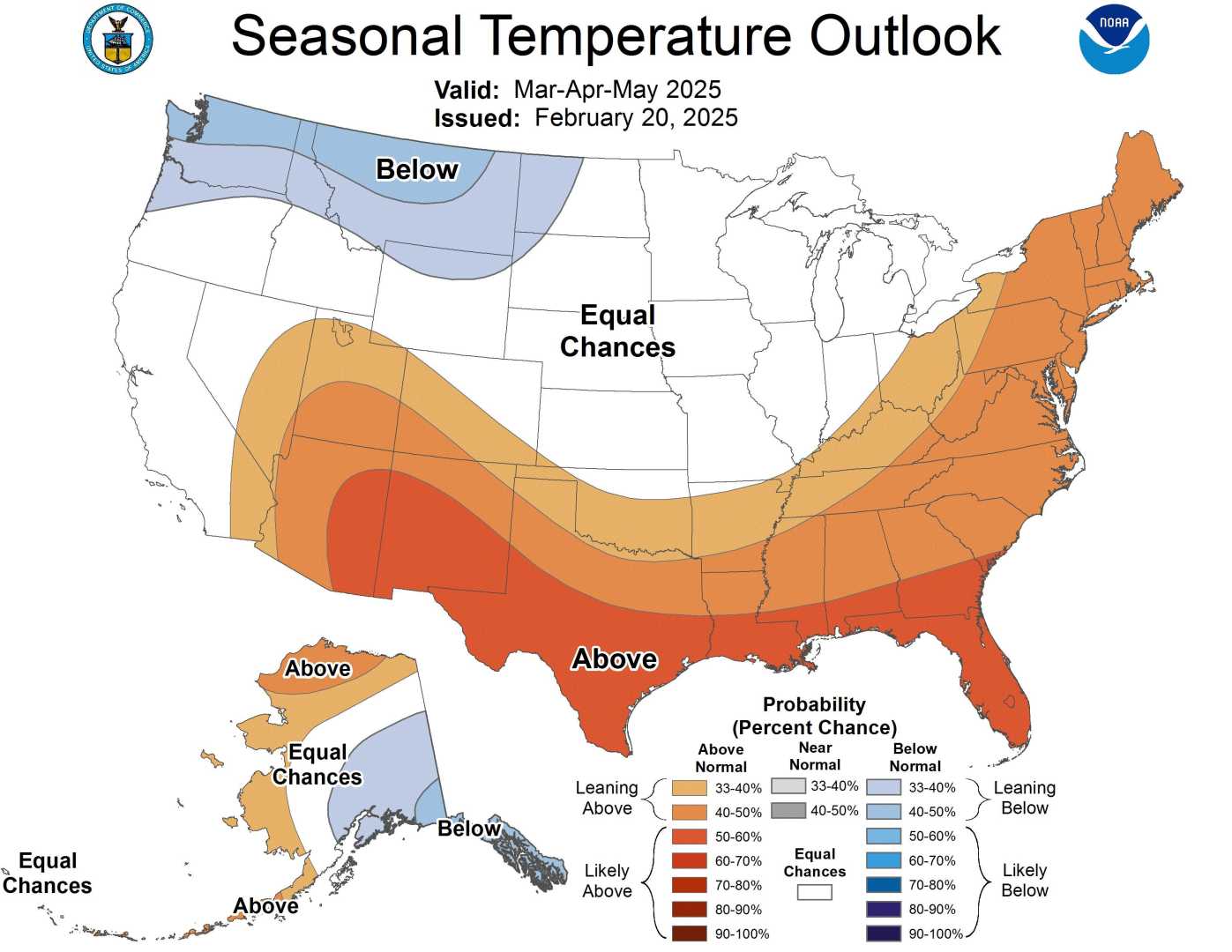News
Spring Thaw Ahead: NOAA Predicts Warm Weather After Brutal Winter

WASHINGTON, D.C. — The National Oceanic and Atmospheric Administration’s Climate Prediction Center released its Spring Outlook for 2025, offering a glimpse of relief from this harsh winter. Millions of Americans, who have faced Arctic air masses, suffering windchills, and heavy snow, can expect a much warmer and drier March, April, and May.
The outlook indicates that much of the United States will experience above-average temperatures over the next three months. The Southern states are likely to see particularly higher temperatures, a welcome change for residents who have endured unusually frigid conditions.
“When it snows in Florida, you know it’s been an extreme winter,” a NOAA spokesperson remarked. “But fortunately, spring is on its way, and many areas will start to thaw out.”
While warmer weather is anticipated, some regions will experience contrasting precipitation levels. Michigan, for example, faces an uncertain weather pattern with equal chances of above-normal or below-normal temperatures, indicating unpredictable conditions ahead.
However, NOAA predicts that precipitation levels across the Great Lakes could be notably above average, suggesting a necessity for rain gear despite the approaching warmer months.
“An investment in rain boots looks to be in order,” the spokesperson advised, signaling that above-average rainfall may be on the horizon for some areas.
While the arrival of spring on March 20 might lead many to retire their winter gear, meteorologists warn that snow can still occur during this transitional season, particularly in northern states.
NOAA’s extended outlook is designed to prepare communities for the climatic shifts ahead, and residents are encouraged to stay informed as the spring equinox approaches.
“It’s important to keep an eye on the forecasts,” the NOAA spokesperson concluded. “Weather can be unpredictable, and being prepared is key.”












